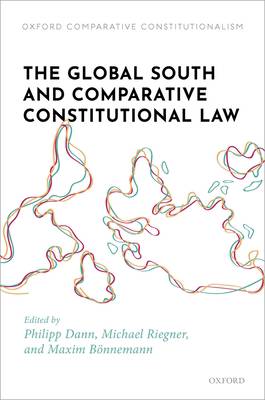
- Afhalen na 1 uur in een winkel met voorraad
- Gratis thuislevering in België vanaf € 30
- Ruim aanbod met 7 miljoen producten
- Afhalen na 1 uur in een winkel met voorraad
- Gratis thuislevering in België vanaf € 30
- Ruim aanbod met 7 miljoen producten
Zoeken
Omschrijving
This volume makes a timely intervention into a field which is marked by a shift from unipolar to multipolar order and a pluralization of constitutional law. It addresses the theoretical and epistemic foundations of Southern constitutionalism and discusses its distinctive themes, such as transformative constitutionalism, inequality, access to justice, and authoritarian legality. This title has three goals. First, to pluralize the conversation around constitutional law. While most scholarship focuses on liberal forms of Western constitutions, this book attempts to take comparative law's promise to cover all major legal systems of the world seriously; second, to reflect critically on the epistemic framework and the distribution of epistemic powers in the scholarly community of comparative constitutional law; third, to reflect on - and where necessary, test - the notion of the Global South in comparative constitutional law. This book breaks down the theories, themes, and global picture of comparative constitutionalism in the Global South. What emerges is a rich tapestry of constitutional experiences that pluralizes comparative constitutional law as both a discipline and a field of knowledge.
Specificaties
Betrokkenen
- Auteur(s):
- Uitgeverij:
Inhoud
- Aantal bladzijden:
- 320
- Taal:
- Engels
- Reeks:
Eigenschappen
- Productcode (EAN):
- 9780198850403
- Verschijningsdatum:
- 24/12/2020
- Uitvoering:
- Hardcover
- Formaat:
- Genaaid
- Afmetingen:
- 160 mm x 236 mm
- Gewicht:
- 680 g

Alleen bij Standaard Boekhandel
+ 451 punten op je klantenkaart van Standaard Boekhandel
Beoordelingen
We publiceren alleen reviews die voldoen aan de voorwaarden voor reviews. Bekijk onze voorwaarden voor reviews.








